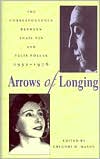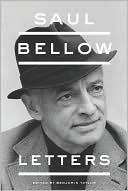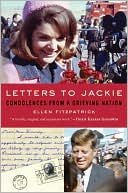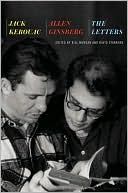Arrows of Longing: The Correspondence Between Anais Nin and Felix Pollak, 1952-1976
Arrows of Longing presents an Anais Nin radically different from the self-conscious persona of the diaries and fiction. The woman engaged in this long, private correspondence emerges as warm, self-effacing, empathetic, and ready to bear the burdens of others. Felix Pollak, the poet whose friendship with Nin is documented here, also struggled for personal and artistic fulfillment.
Search in google:
Arrows of Longing presents an Anais Nin radically different from the self-conscious persona of the diaries and fiction. The woman engaged in this long, private correspondence emerges as warm, self-effacing, empathetic, and ready to bear the burdens of others. Felix Pollak, the poet whose friendship with Nin is documented here, also struggled for personal and artistic fulfillment.Library JournalThis title (taken from Nietzsche's Pfeile der Sehnsucht) might well describe the emotional frustrations of the two correspondents whose letters appear in this book. Nin struggled with publishers 20 years before her books achieved recognition. Pollak, an aspiring author and rare-books librarian, deplored what he considered to be his lackluster career choice. Editor Mason (English, Gustavus Adolphus Coll.) successfully organizes the letters in chronological segments beginning each with an explanatory introduction. Nin and Pollak ceased correspondence in 1962 because of some disagreements over artistic principles. However, they resumed correspondence in 1972 until Nin's death from cancer in 1977. Appendixes include a Pollak bibliography and a selection of Pollak's poetry. This book is both useful and entertaining, because it offers a discussion of the writers' aesthetic beliefs while revealing the intimate thoughts of two romantic, creative individuals. Recommended.Robert T. Ivey, Univ. of Memphis
\ Library JournalThis title (taken from Nietzsche's Pfeile der Sehnsucht) might well describe the emotional frustrations of the two correspondents whose letters appear in this book. Nin struggled with publishers 20 years before her books achieved recognition. Pollak, an aspiring author and rare-books librarian, deplored what he considered to be his lackluster career choice. Editor Mason (English, Gustavus Adolphus Coll.) successfully organizes the letters in chronological segments beginning each with an explanatory introduction. Nin and Pollak ceased correspondence in 1962 because of some disagreements over artistic principles. However, they resumed correspondence in 1972 until Nin's death from cancer in 1977. Appendixes include a Pollak bibliography and a selection of Pollak's poetry. This book is both useful and entertaining, because it offers a discussion of the writers' aesthetic beliefs while revealing the intimate thoughts of two romantic, creative individuals. Recommended.Robert T. Ivey, Univ. of Memphis\ \ \ \ \ Kirkus ReviewsAlthough Nin confided in her diary, "These are the letters which have kept my writing alive," the often banal correspondence is of less significance for her readers. The embellished multi-volume self-portrait of Nin's diary, with its numerous entangled love affairs and wide-ranging travels, hardly suggested the more or less mundane correspondence she conducted with Felix Pollak, a librarian at Northwestern University. Pollak, who initially contacted the then-obscure Nin about the purchase of her manuscripts, was also a fellow European exile, who had fled his beloved Austria with the Anschluss, and a struggling poet with a taste for the mordant social observations of his hero, the Viennese critic Karl Kraus. Pollak's denunciations of the philistinism in American publishing, which had persistently rejected Nin's novel A Spy in the House of Love, combined with his fanlike admiration for Nin's work to win over the author. Mason (English/Gustavus Adolphus Coll.) has collected and thoroughly annotated their letters, adding examples of Pollak's poetry and aphorisms he sent to Nin, but his scholarly efforts cannot gloss over Nin's fairly trivial letters, with their complaints about her lack of recognition, or Pollak's sub-Krausian imprecations upon 1950s America. Their slim literary links apart, their unfurling relationship is based on egotistic symbiosis, she receiving his critical appreciation, he an ear to her pent-up frustrationsþsocial, professional, literary, and marital. Their friendship teetered at first on their one face-to-face meeting, for which Pollak later apologized for his "adolescent" behavior, and it broke off for a decade after Pollak wrote a review (never published) ofNin's Seduction of the Minotaur that revealed its roman-…-clef descriptions of her then-secret affair with Henry Miller. After the epistolary dynamo of Nin's correspondence with Henry Miller (A Literary Passion, 1987), this friendship on paper has all the power of an electric train set.\ \








